In the ever-evolving landscape of marketing, the significance of personalization has emerged as a paramount factor in crafting effective SMS campaigns. By understanding the nuances of each customer’s preferences, businesses can not only capture attention but also foster engagement and loyalty.
In this article, we will delve into the pivotal role of personalization in SMS marketing, unraveling strategies to elevate messages beyond the ordinary and create a lasting impact in a crowded digital environment.
Why is SMS Personalization Important?
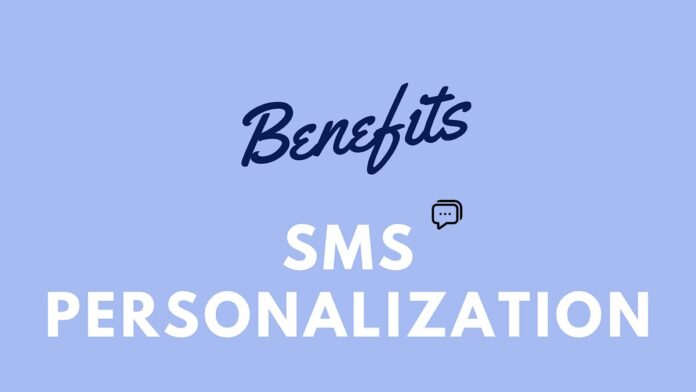
Consumer attention span is now shorter than it was a decade ago. That’s why information overload is the norm, SMS personalization has emerged as a potent tool for your brand to break through the noise and establish genuine connections with your audience.
Here’s why SMS personalization is of paramount importance:
Cultivating Relevance
Personalized text messages cut through the clutter by directly addressing recipients’ interests, preferences, and behaviors. By utilizing customer data and segmentation, businesses can send content that feels pertinent, increasing the likelihood of recipients paying attention and taking desired actions.
Elevating Customer Experience
Personalization demonstrates that a brand values and understands its customers. By using recipients’ names, referencing past interactions, or recommending products based on purchase history, 2-way SMS service helps create a sense of individualized care, enhancing overall customer satisfaction.
Boosting Open Rates and Engagement
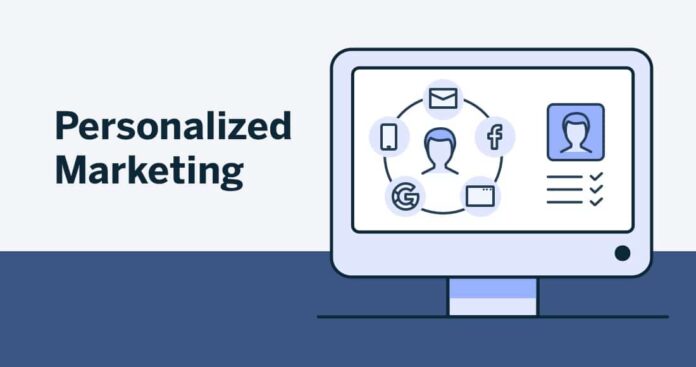
Personalized marketing messages tend to enjoy higher open rates compared to generic broadcasts. When recipients see a familiar name or content that aligns with their interests, they’re more inclined to engage, reply, or click through, ultimately driving better conversion rates.
Fostering Customer Loyalty
By tailoring messages to customers’ preferences, brands can foster a sense of connection and loyalty. This personal touch encourages repeat business and advocacy, as satisfied customers are more likely to stick around and recommend the brand to others.
Enhancing Data Utilization
Leveraging customer data effectively allows businesses to create highly targeted SMS campaigns. Segmentation based on demographics, purchase history, location, and browsing behavior enables brands to deliver messages that truly resonate, showcasing an understanding of each recipient’s unique journey.
Adapting to Mobile-First Consumer Behavior
As mobile devices dominate communication channels, SMS remains a direct and immediate way to reach customers. Customized text messages capitalize on this trend, ensuring that marketing messages are aligned with how consumers prefer to engage with brands.
By delivering tailored content that addresses individual needs and preferences, your brand can stand out, foster engagement, and ultimately cultivate lasting customer relationships.
Benefits of SMS Marketing Personalization
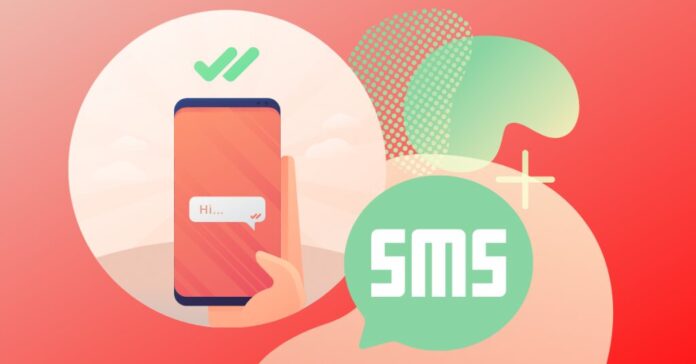
SMS marketing personalization has emerged as a vital tool for fostering meaningful customer connections. Its benefits are profound, spanning heightened engagement, improved conversions, and enduring brand loyalty.
- Enhanced relevance. Tailoring SMS messages to recipient preferences and behaviors increases relevance, capturing attention and driving engagement.
- Improved open rates. Personalized messages have higher open rates as recipients are more likely to engage with content that speaks directly to them.
- Increased click-through rates. Relevant content prompts recipients to take action, leading to higher click-through rates and conversions.
- Customer satisfaction. Personalization shows understanding and care, elevating the overall customer experience and satisfaction.
- Stronger customer relationships. Personalized SMS builds connections, fostering loyalty and repeat business.
- Efficient segmentation. Utilizing customer data for segmentation ensures messages reach the right audience, maximizing campaign effectiveness.
- Optimized conversion rates: Relevant offers and recommendations increase the likelihood of recipients making a purchase.
- Data utilization. Personalization leverages customer data, allowing brands to showcase a deep understanding of each individual.
- Mobile-first strategy. SMS personalization aligns with mobile-centric consumer behavior, reaching customers where they are through a 2-way SMS service.
- Competitive edge. Stand out in a crowded digital landscape by delivering unique and tailored messages.
How to Personalize SMS to Get a Stand-Out Result
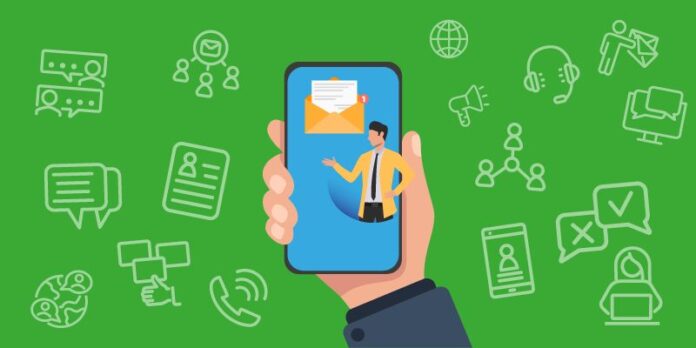
Personalizing SMS messages goes beyond mere customization – it’s about creating meaningful interactions that resonate with your recipients. To achieve standout results, consider these strategies while drawing inspiration from real-life examples:
#1 Segmentation for Targeted Outreach
Divide your audience based on demographics, behaviors, or purchase history. For instance, a fitness brand could send workout tips to active subscribers and nutrition advice to those interested in healthy eating.
#2 Dynamic Content Incorporation
Embed dynamic fields to automatically include a subscriber’s name, recent purchases, or location. Airbnb excels in this by sending messages featuring unique destination suggestions based on the recipient’s browsing history.
#3 Triggered Messages for Timely Engagement
Send automated messages triggered by specific actions or events. An e-commerce platform could send a personalized thank-you message after a purchase or offer related product recommendations.
#4 Behavioral Tracking for Personal Recommendations
Analyze user behavior to suggest products or services aligned with their preferences. Amazon employs this tactic by sending tailored product recommendations based on browsing and purchase history.
#5 Localized Offers for Relevance
Tailor promotions to the recipient’s location. Starbucks implements this by sending localized offers for nearby stores, boosting foot traffic and sales.
#6 Customer Milestones Celebration
Send personalized messages to celebrate birthdays, anniversaries, or subscription anniversaries. Spotify celebrates users’ “Spotifyversaries” with playlists featuring their most-played songs.
#7 Interactive Elements for Engagement
Include interactive elements like polls, quizzes, or surveys. Domino’s Pizza engaged customers by sending SMS messages with interactive pizza orders, allowing customers to customize their toppings via text.
#8 Urgent Alerts with Relevance
Deliver time-sensitive notifications or alerts based on user preferences. Airlines send personalized flight updates, gate changes, and boarding passes via SMS for a seamless travel experience.
#9 Use A/B Testing for Refinement
Continuously refine your personalization efforts through A/B testing. Experiment with different personalized elements to identify what resonates best with your audience.
Conclusion
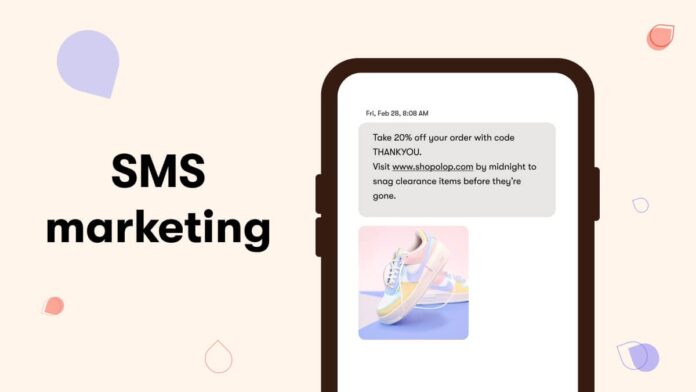
As we conclude our exploration of the immense benefits of personalized SMS marketing, one undeniable truth emerges: the right platform is pivotal for realizing these remarkable outcomes.









